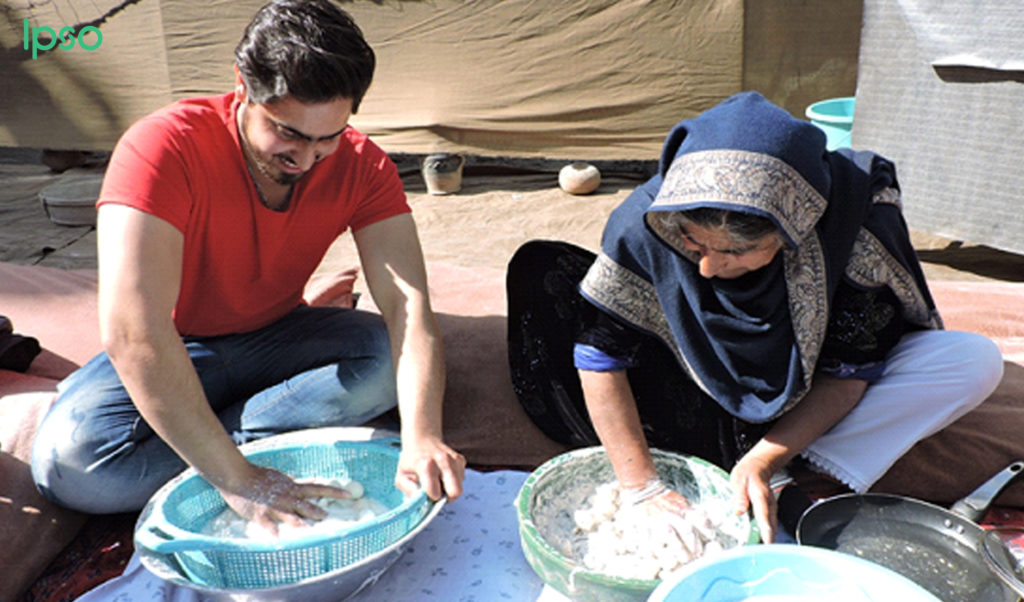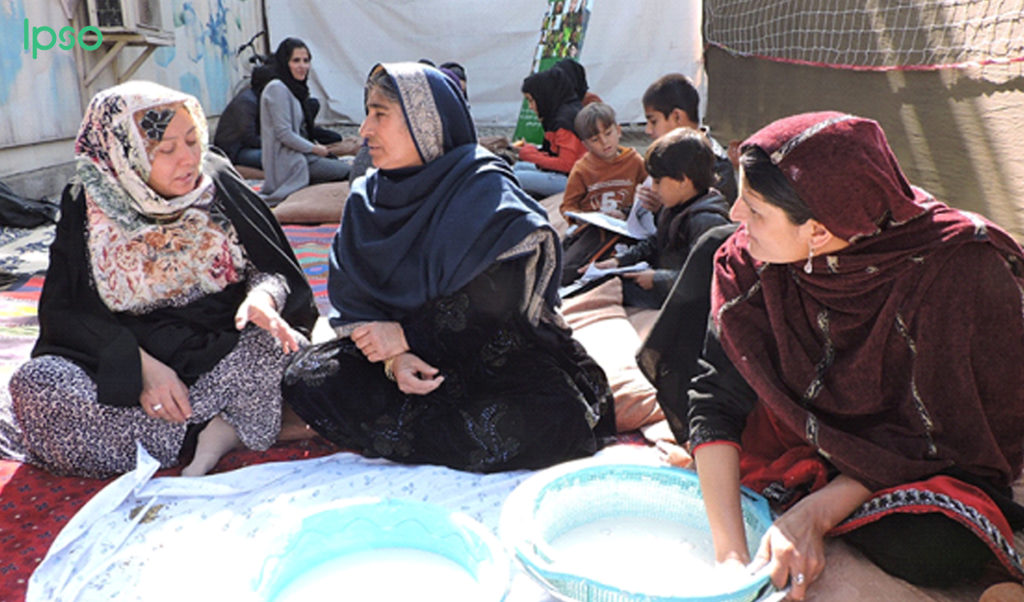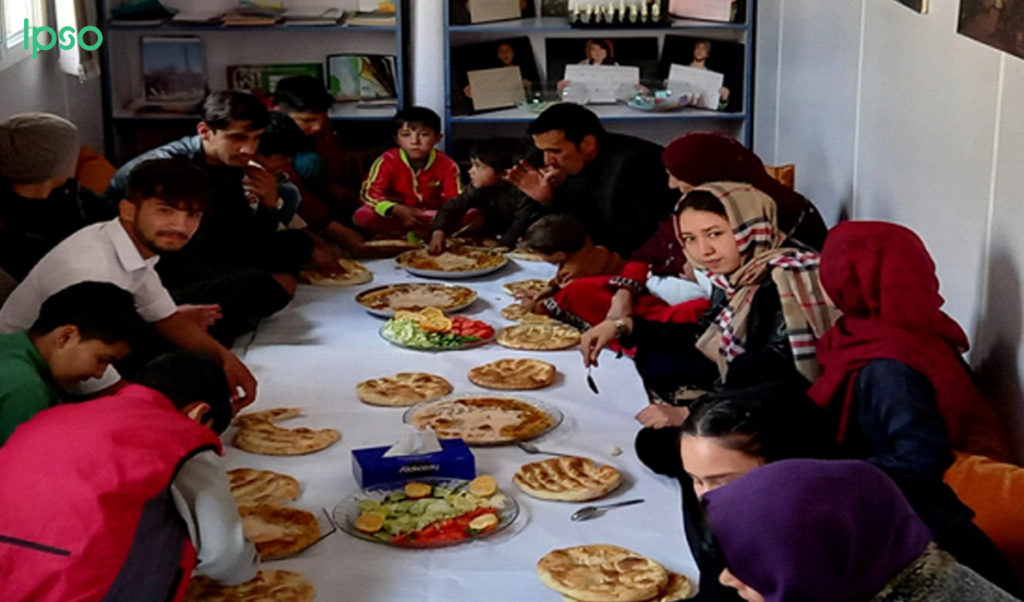It is difficult to overestimate just how important meals are for Afghans. Many foods and eating habits follow traditional practices, even in large cities where fast-food has become increasingly common, especially for the young. As well as a means of satisfying hunger, however, food is also an opportunity to get together. “Because we tend to have large families, a meal is an important time for us to talk and plan our day, make decisions and even solve problems.” Says Atefa, an 18-year-old girl from Kabul.
Food is also an important part of community events such as weddings, funerals and religious festivals such as ‘Eid. Sharing food is a way of showing respect for guests, and an opportunity to meet in celebration or sympathy, and has the potential to strengthen the sense of community.
The recent pandemic has deterred many people from following the traditional rituals associated with rites of passage or festivals, especially when these bring large groups together. Among these traditions is the making of samanak (a sweet made from germinated wheat) at the start of the New Year, when women gather to prepare this together with relatives or members of their community. Some young Afghans are trying to reach out beyond their community for such events, in an effort to make them more inclusive.
“Last new year, around 40 women and girls from several districts of Kabul came together to prepare samanak” explains Atefa. ” with Pashtun, Tajik, Hazara, and Uzbek women all working side by side with a common purpose. It helped us to get to know each other better.”
Food is also an important part of local cultures in different parts of the country: for example, kichiri (rice-made dish) is associated with Herat, while shola (rice-made dish) tends to be made in Ghorband and sweet pastries or kolcha are made in Badakhshan and eaten with shorchai (salty tea).
In May, at another event in Kabul, a group of young people from different communities came together and cooked kichiri qorot (common in Herat) and quruti (typical in Hazarajat). The idea was to provide an opportunity for the participants to get to know each other and cooperate through cooking and eating. One of those involved, Fatema who is 21 years old, explains “What surprised me was that a Pashtun man and Hazara woman who were part of the event did not know each other’s language but tried to communicate while cooking, while at times laughing at mistakes they made. Food became their shared language.”
Fatema’s mother, who also joined in the cooking, adds: “I did not know how rewarding and fun it could be to work with people from other ethnicities; we talked, laughed, cooked and ate together. Not having spent much time with people from other communities before, I assumed that they would not eat food that I made. I was not comfortable at first and was afraid of being judged or not being accepted by them.”
Fatema concludes by saying that: “Sometimes a simple meal together can bring us Afghans closer.”














